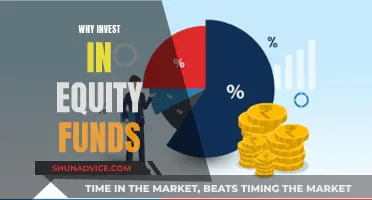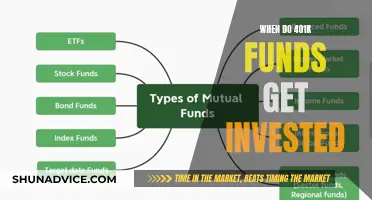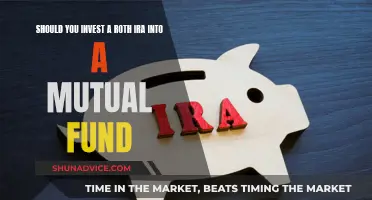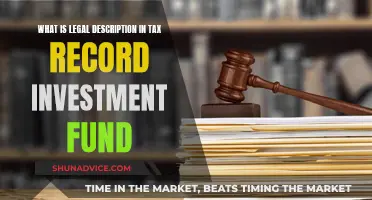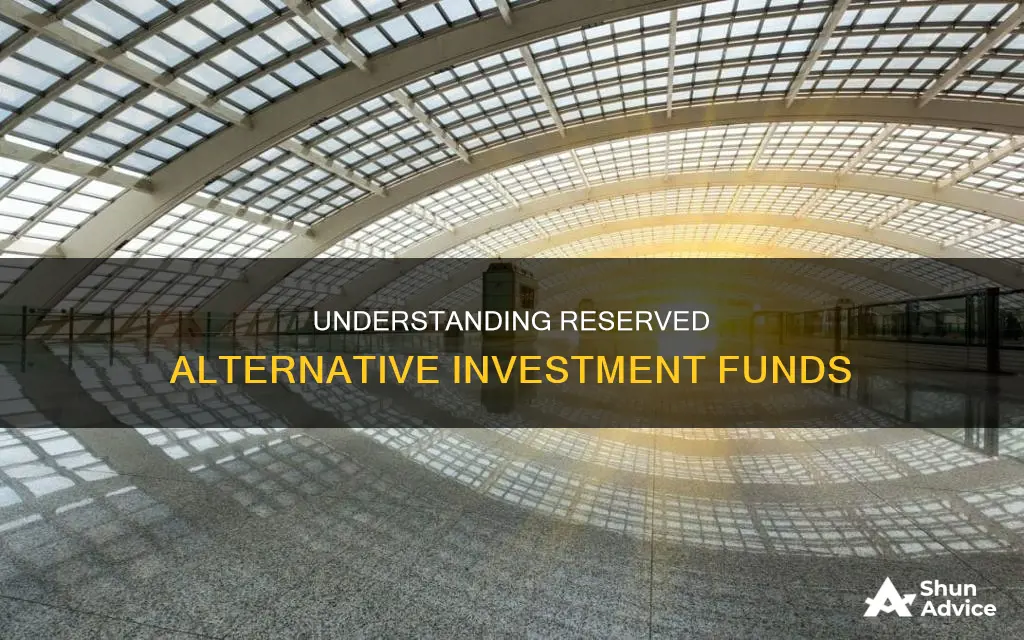
The Reserved Alternative Investment Fund (RAIF) is an undertaking for collective investment domiciled in Luxembourg. It was introduced in 2016 as an upgrade to the country's funds offering, providing a faster and more flexible alternative to its Specialised Investment Fund (SIF) and Investment Companies in Risk Capital (SICAR) structures. RAIFs are considered semi-regulated funds as they are not subject to the supervision of the Commission de Surveillance du Secteur Financier (CSSF), the Luxembourg supervisory authority. However, they are managed by an external Alternative Investment Fund Manager (AIFM), who can be domiciled in Luxembourg or any other EU member state. This structure offers investment opportunities in alternative assets such as private equity, real estate, and infrastructure, attracting institutional investors, professional investors, and well-informed investors.
| Characteristics | Values |
|---|---|
| Type of Fund | Unregulated collective investment vehicle |
| Launched | 2016 |
| Location | Luxembourg |
| Investors | Institutional and professional investors or other investors who have stated in writing that they adhere to the status of well-informed investor and, either invest a minimum of 100,000-125,000 Euros in the RAIF or have been the subject of an assessment made by a credit institution, an investment firm or a UCITS management company or an authorised AIFM certifying their expertise, experience and knowledge to adequately appraise the contemplated investment in the RAIF |
| Management | Managed by an external Alternative Investment Fund Manager (AIFM) |
| Time to set up | A few weeks |
| Investment | Can invest in all types of asset classes |
| Tax | Subject to an annual subscription tax of 0.01% on their net assets |
What You'll Learn

The RAIF is a flexible and agile investment vehicle
The Reserved Alternative Investment Fund (RAIF) is a flexible and agile investment vehicle. It is an unregulated collective investment vehicle created in 2016 and governed by the AIFM directive, which aims to establish a standardised regulatory framework for alternative funds distributed in the European Union.
The RAIF is flexible because it can invest in all types of asset classes. It is agile because it can be constituted and operational within a few weeks, while still being managed by an AIFM (alternative investment fund manager). This is the innovation of the RAIF. Traditional Luxembourg funds, like UCITS and specialised investment funds (FIS), require the authorisation of the regulator before going to market—a procedure that can take up to several months.
The RAIF is a Luxembourg product and is subject to AIFMD, a directive that regulates the managers of alternative investment funds and not the product itself. AIFMD grants managers a licence to create and manage alternative funds in any country in the European Union. The idea behind it was to offer a flexible alternative investment structure that could be set up quickly and, above all, positioned for competitive access to the European market for managers of alternative assets and AIFs located in third countries, offering greater flexibility in terms of authorisation and supervision.
The RAIF must be managed by an external regulated AIFM, who can be domiciled in Luxembourg or in any other EU member state, to ensure a sufficient level of protection and regulation for investors. The RAIF can be set up as a Special Limited Partnership or a SICAV and can create several compartments for different projects or strategies. It can invest in any type of asset or strategy as long as the fund does not invest more than 30% of its AUM in the same assets.
The RAIF is a huge success and offers the same advantages as any other AIF. It benefits all "AIFM" managers looking for a competitive alternative product. RAIFs can be wound up at a lower cost, and their number has been rising, with around 2,301 RAIFs today, according to the Luxembourg RCS (Trade and Companies Register). RAIFs are catching up with SIF structures (Special Investment Funds) as the ideal legal forms, especially for real estate funds.
Best Debt Funds to Invest in Amid Rising Rates
You may want to see also

It is an unregulated fund created in 2016
The Reserved Alternative Investment Fund (RAIF) is an unregulated fund created in 2016. It is a Luxembourg product that is governed by the AIFM directive, which aims to establish a standardised regulatory framework for alternative funds distributed in the European Union. The RAIF is both flexible and agile. It is flexible because it can invest in all types of asset classes, and agile because it can be constituted and operational within a few weeks, while still being managed by an AIFM (alternative investment fund manager).
The creation of the RAIF can be attributed to Luxembourg's political and economic stability, as well as its regulatory framework, which have always been fertile ground for new and innovative financial solutions and services. Today, Luxembourg is a major centre for alternative investments, and the RAIF is a perfect example of this.
The RAIF is a semi-regulated fund because it is not subject to the supervision of the Commission de Surveillance du Secteur Financier (CSSF), the Luxembourg supervisory authority. However, it still involves the nomination of a duly authorised AIFM subject to the AIFM Law. The RAIF regime introduces a model with a less sophisticated process than regulated funds, without double supervision by the CSSF, making it more attractive for investment funds and asset management. The Luxembourg regime aligns with the European Union (EU)'s approach, through the Directive on AIFMs (the AIFMD), to focus on management supervision rather than product supervision.
The RAIF is a collective investment structure for qualified investors, offering investment opportunities in alternative assets such as private equity or real estate. It can be created as a multi-compartment investment structure, with each sub-fund having its own investment policy, specific features, governing rules, or investment manager. RAIFs are not subject to corporate income tax, municipal business tax, or net wealth tax. However, they are subject to an annual subscription tax of 0.01% on their net assets.
Bond Funds: Where to Invest Now?
You may want to see also

It is governed by the AIFM directive
The Reserved Alternative Investment Fund (RAIF) is governed by the AIFM directive, which aims to establish a standardised regulatory framework for alternative funds distributed in the European Union. The AIFM directive regulates the managers of alternative investment funds and not the product itself. In other words, it grants managers a licence to create and manage alternative funds in any country in the European Union. The directive focuses on management supervision rather than product supervision.
The AIFM directive allows the RAIF to be both flexible and agile. It is flexible because it can invest in all types of asset classes, and it is agile because it can be constituted and operational within a few weeks while still being managed by an AIFM (alternative investment fund manager).
The RAIF must be managed by an external regulated AIFM, domiciled in Luxembourg or any other EU member state, to ensure a sufficient level of protection and regulation for investors. The AIFM directive enables the RAIF to take advantage of the AIFM's marketing passport to market across the EU. This is known as passporting, and it allows for the distribution of shares to professional investors across Europe.
The AIFM directive also allows the RAIF to switch to the SIF (Specialised Investment Fund) or SICAR (Investment Companies in Risk Capital) regimes if additional investor protection is required at the fund level.
A Guide to Investing in CPSE Exchange Traded Funds
You may want to see also

The RAIF is not subject to dual regulation
The Reserved Alternative Investment Fund (RAIF) is a Luxembourg product launched in 2016. It is a collective investment structure for qualified investors, allowing them to invest in alternative asset classes such as private equity and real estate. RAIFs are considered semi-regulated funds as they are not directly supervised by the Commission de Surveillance du Secteur Financier (CSSF), the Luxembourg supervisory authority.
Now, here are 4-6 paragraphs on "The RAIF is not subject to dual regulation":
Instead of CSSF oversight, RAIFs are managed by an external Alternative Investment Fund Manager (AIFM) who can be domiciled in Luxembourg or any other EU member state. This ensures a sufficient level of protection and regulation for investors. The AIFM is subject to the Alternative Investment Fund Managers Directive (AIFMD), which grants them a marketing passport to promote the fund across the European Union. This enables RAIFs to be marketed and distributed to professional investors across Europe.
The RAIF structure provides flexibility and agility, allowing investors to invest in all types of asset classes without the need for prior regulatory approval. Traditional Luxembourg funds, such as UCITS and SIFs, require authorisation from the regulator before going to market, which can take several months. In comparison, a RAIF can be set up within a few weeks.
The absence of dual regulation for RAIFs reduces administrative burdens and costs for asset managers. By partnering with an experienced fund services provider, asset managers can further streamline the establishment of RAIF structures and benefit from reduced time-to-market. This makes RAIFs an attractive choice for fund initiators, particularly those looking for a faster and more flexible alternative to traditional fund structures in Luxembourg.
Overall, the lack of dual regulation for RAIFs contributes to their popularity among alternative asset managers and investors seeking efficient and agile investment vehicles.
Growth Funds: Smart 401k Investment Strategy?
You may want to see also

It is reserved for well-informed investors
Reserved Alternative Investment Funds (RAIFs) are reserved for "well-informed investors". This includes institutional and professional investors, or other investors who meet certain requirements.
Firstly, well-informed investors must state in writing that they adhere to the status of a well-informed investor. Secondly, they must either invest a minimum of 100,000 to 125,000 Euros in the RAIF, or be assessed by a credit institution, an investment firm, or a UCITS management company, which certifies their expertise, experience, and knowledge to adequately appraise the investment in the RAIF.
RAIFs are a type of investment fund domiciled in Luxembourg. They were introduced in 2016 as an upgrade to the country's funds offering, providing a faster and more flexible alternative to traditional funds. RAIFs are considered semi-regulated funds as they are not directly supervised by the Commission de Surveillance du Secteur Financier (CSSF), the Luxembourg supervisory authority. Instead, they are managed by an external Alternative Investment Fund Manager (AIFM) who can be domiciled in Luxembourg or another EU member state.
RAIFs offer investment opportunities in alternative assets such as private equity, real estate, infrastructure, and debt acquisition. They are attractive to investors because they can be set up quickly and are more flexible than traditional funds. RAIFs can also benefit from passporting advantages, enabling their shares to be distributed to professional investors across Europe.
Micro Cap Fund: DSP Blackrock's Smart Investment Option
You may want to see also
Frequently asked questions
A Reserved Alternative Investment Fund (RAIF) is a type of investment fund domiciled in Luxembourg that offers a flexible and agile approach to investing. RAIFs can invest in various asset classes, including private equity, real estate, and infrastructure, without the need for regulatory approval.
RAIFs are targeted at institutional investors, professional investors, and well-informed investors. A well-informed investor is defined as someone who invests a minimum of EUR 100,000 (or EUR 125,000 according to some sources) and has been assessed by a credit institution or investment firm as having the expertise to appraise the investment adequately.
RAIFs offer several advantages, including flexibility in investment choices, speed to market (as they don't require regulatory approval), and passporting advantages for distribution across Europe. They are also subject to lower costs and provide access to a wide range of alternative investment opportunities.
A RAIF must be managed by an external Alternative Investment Fund Manager (AIFM) domiciled in an EU member state. While RAIFs themselves are not directly regulated, they are subject to the law of the host country, and the AIFM that manages them is regulated. This provides a sufficient level of protection and regulation for investors.


